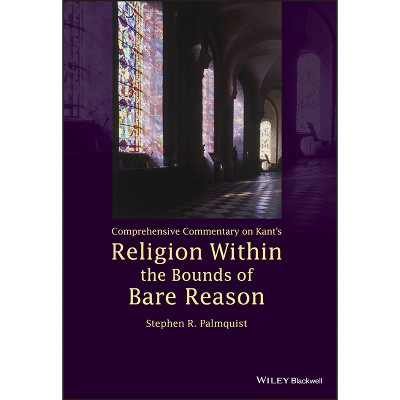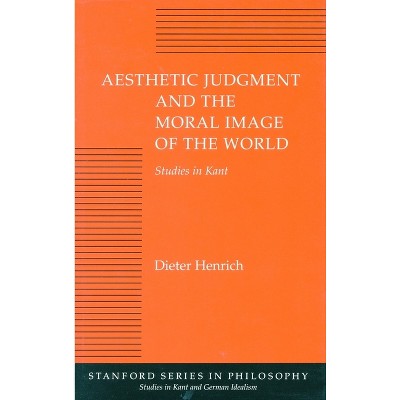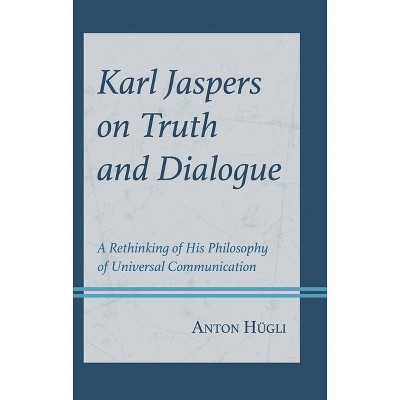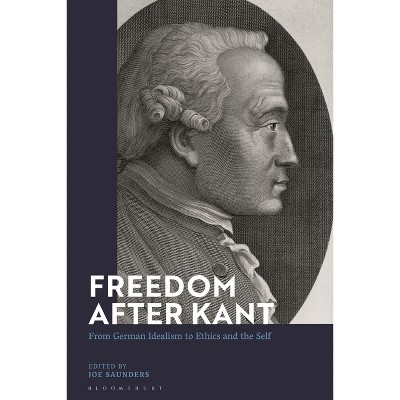Kant and Mysticism - (Contemporary Studies in Idealism) by Stephen R Palmquist (Paperback)

About this item
Highlights
- Kant and Mysticism interprets Kant's early criticism of Swedenborg's mysticism as the fountainhead of the Critical philosophy.
- About the Author: Stephen R. Palmquist is professor of religion and philosophy at Hong Kong Baptist University.
- 192 Pages
- Philosophy, Movements
- Series Name: Contemporary Studies in Idealism
Description
About the Book
Kant and Mysticism interprets Kant's early criticism of Swedenborg's mysticism as the fountainhead of the Critical philosophy. Kantian Critique revolutionizes not only traditional metaphysics, but also our understanding of mysticism: Critical mysticism is a unitive experience ...Book Synopsis
Kant and Mysticism interprets Kant's early criticism of Swedenborg's mysticism as the fountainhead of the Critical philosophy. Kantian Critique revolutionizes not only traditional metaphysics, but also our understanding of mysticism: Critical mysticism is a unitive experience that impels us to lay bare all human pretensions to reason's light.Review Quotes
"Palmquist ... is to be applauded for his willingness to challenge conventional accounts of the development of Kant's Critical philosophy and broaden the scope of Kant interpretation in this and other works." - J. Colin McQuillan, St. Mary's University
"Kant and Mysticism lucidly unfolds a significant alternative to the standard interpretations of Dreams [of a Spirit-Seer] and, more generally, mysticism in Kant's philosophy. It is an eloquent and nuanced reading of the conceptual development of Kant's Critical philosophy in its historical context and Kant's thinking of problems of experience, intuition and the religious that will become an essential reference for future scholarship." - Eric S. Nelson, Hong Kong University of Science and Technology
"The whole book is a bold attempt to overturn and dismantle the standard interpretation (namely, that Kant is primarily an empirical philosopher, the all-destroyer of metaphysics and a reducer of religion to morality) and its frown on any form of mysticism in Kant whatsoever." - Prof. Chris L. Firestone, Trinity International University
Kant and Mysticismdoes a good job of capturing what is mystical in Kant, pushing some key Kantian themes toward the mystical while seemingly preserving their spirit. . . . Palmquist thus helps us to see a Kant whose concern with the limits of knowledge goes beyond developing a metaphysics, and whose concern with religion goes beyond grafting doctrines onto morality. . . . Palmquist's work deserves praise and attention for drawing together underutilized parts of Kant's work in an illuminating way.
Kant's Dreams of a Spirit-Seer, his early sardonic critique of the Swedish mystic Emanuel Swedenborg, is often taken as an odd and unimportant episode in the development of Kant's critical philosophy. But Stephen R. Palmquist convincingly shows that Kant was significantly influenced by Swedenborg's writings, borrowing elements of epistemology, ethics, and religious thinking from Swedenborg. Palmquist's work also profoundly deepens our understanding of the extent to which a mysticism of reason lies at the heart of Kant's whole critical philosophy.
Palmquist's holistic and perspectival interpretation offers a provocative way to rethink Kant's arguments and their implications.
The term "mysticism" is generally regarded as having negative connotations for Kant. Thus, for example, references to Kant's interest in K.A. Wilmans' dissertation on this topic are often one-sided. Consequently, works clarifying Kant's actual relation to mysticism are most welcome. In view of the widespread disregard for Kant's central questions, this new book is of the highest importance, especially its last chapter, on the mystical implications of Kant's Opus Postumum.
About the Author
Stephen R. Palmquist is professor of religion and philosophy at Hong Kong Baptist University.Shipping details
Return details
Trending Poetry











